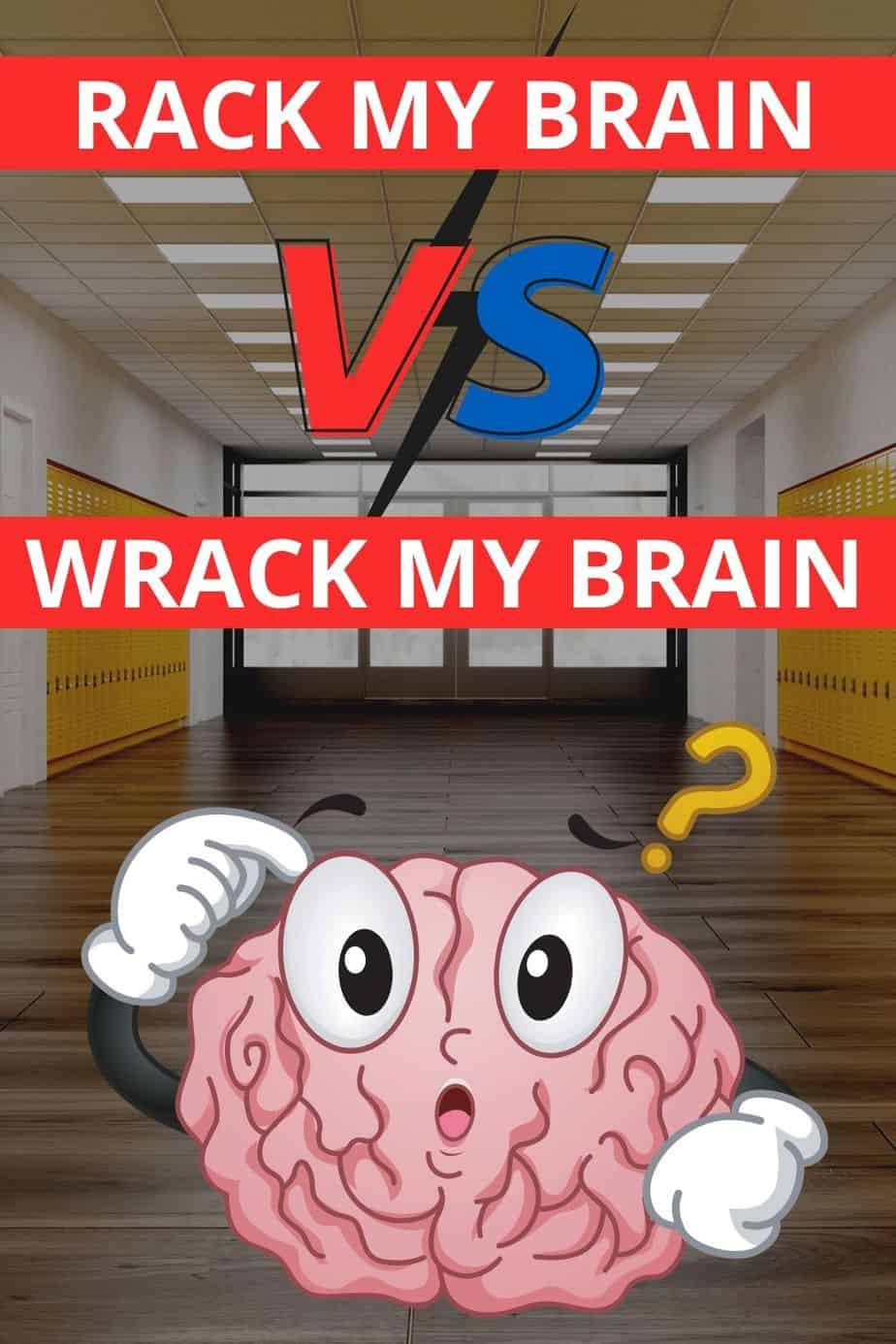
Have you ever found yourself in a situation where you had to think deeply about something, but no matter how hard you tried, you just couldn't seem to come up with a solution? If so, you were likely "racking your brain."
In this comprehensive guide, we'll explore the meaning of this common phrase, its origins, and how to overcome the feeling of being stuck when trying to solve a problem.
What Does "Racking My Brain" Mean?

The phrase "racking my brain" refers to the intense mental effort one exerts when trying to solve a problem or figure something out. It's a figurative expression that describes the feeling of one's brain being stretched, strained, or "racked" like a torture device.
When someone says they are "racking their brain," they are typically working hard to remember something, solve a puzzle, or come up with a solution to a problem. It's a state of mental exertion that can be both frustrating and exhausting.
Origins of the Phrase

The origins of the phrase "racking my brain" are unclear, but it's believed to have originated in the 16th century. The word "rack" was commonly used during this time to refer to a torture device that stretched a person's limbs until they were in extreme pain.
Over time, the word "rack" began to be used figuratively to describe situations or experiences that were similarly painful or difficult. This eventually led to the phrase "racking my brain" being used to describe the intense mental effort required to solve a problem or remember something.
Why Does It Feel Like My Brain Is Being Racked?

When you're "racking your brain," you are likely experiencing a state of mental overload. Your brain is working hard to process and store information, and the more you try to force it to work, the more overloaded it becomes.
As a result, you may experience symptoms such as mental fatigue, difficulty concentrating, and even physical exhaustion. This is because your brain is using up a lot of energy to try to solve the problem or remember the information, leaving you feeling drained and exhausted.
How to Overcome the Feeling of Being Stuck

If you find yourself "racking your brain" and feeling stuck, there are several strategies you can use to overcome the feeling of mental overload and find a solution to your problem:
- Take a Break: Sometimes, the best thing you can do is step away from the problem for a while. Take a walk, do something else, or simply give your brain a rest. When you come back to the problem, you may find that you have a fresh perspective and are better able to solve it.
- Brainstorm: Try brainstorming different solutions or approaches to the problem. Write down your ideas, no matter how silly they may seem. Sometimes, the most creative solutions come from thinking outside the box.
- Get Input from Others: Sometimes, all it takes is a fresh set of eyes to help you see a problem in a new way. Talk to friends, colleagues, or mentors about your problem and see if they have any insights or suggestions.
- Break the Problem Down: If the problem feels overwhelming, try breaking it down into smaller, more manageable pieces. Focus on solving one piece at a time, and before you know it, the whole problem may be solved.
- Use Visualization: Visualize yourself solving the problem or achieving your goal. This can help boost your confidence and give you the motivation you need to keep trying.
Conclusion
"Racking my brain" is a common expression that describes the feeling of intense mental effort required to solve a problem or remember something. It can be a frustrating and exhausting experience, but there are strategies you can use to overcome the feeling of being stuck and find a solution.
By taking a break, brainstorming, getting input from others, breaking the problem down, and using visualization, you can give your brain the space and tools it needs to come up with a solution.